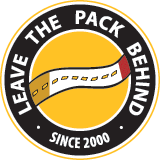Queen’s LTPB
Home |
1. Is there a safe way to smoke?
NO…. all cigarettes can cause damage to the human body and even a
small amount is dangerous. Cigarettes are perhaps the only legal product
whose advertised and intended use – smoking- is harmful to the body and
is a proven cancer-causer.
2. Is cigarette smoking really addictive?
YES…. The nicotine in cigarette smoke is what causes an addiction
to smoking. Nicotine is a drug, which is addicting for three main
reasons. First, when taken in small amounts, nicotine produces
pleasurable feelings that make the smoker want to smoke more. Second,
smokers usually become dependent on nicotine and suffer both
psychological and physical withdrawal symptoms when they smoke smoking.
Third, because nicotine affects the chemistry of the brain and central
nervous system, it can affect the mood and temperament of the smoker.
3. What does nicotine do?
Nicotine is a poison and taken in large doses could kill a person by
paralyzing breathing muscles. Smokers usually take it in small amounts
that the body can quickly break down and get rid of. The first dose of
nicotine causes the person to feel awake and alert, while later doses
result in a calm, relaxed feeling.
4. What in cigarette smoke is harmful?
Cigarette smoke is a complex mixture of organic and inorganic
compounds generated by the combustion (burning) of tobacco and
additives. Cigarette smoke contains tar, which is made up of over 4,000
chemicals, including the 43 known to cause cancer. Some of these
substances cause heart and respiratory diseases, all of which are
disabling and can cause death. Some of the chemicals found in cigarettes
smoke include: cyanide, benzene, formaldehyde, methanol (wood alcohol),
acetylene, and ammonia. It also contains the poisonous gases nitrogen
oxide and carbon monoxide.
5. Can quitting really help a lifelong smoker?
YES! It’s never too late to quit. The sooner the smoker quits, the
more they can reduce their chances of getting cancer and other diseases.
|










